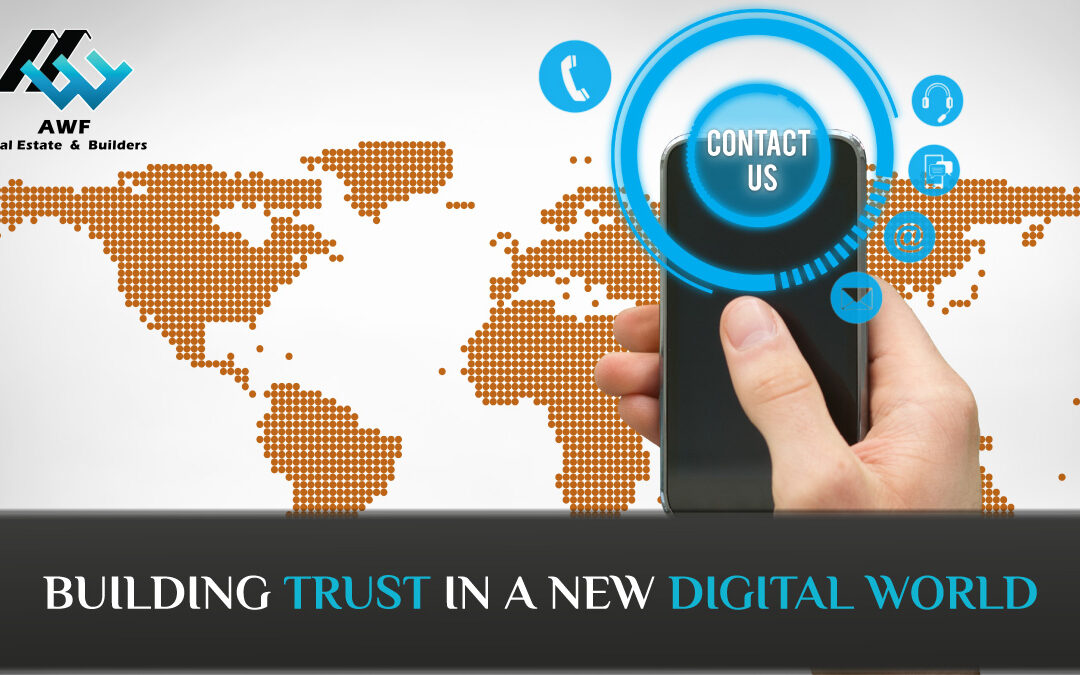Building Trust In A New Digital World
In a now increasing virtual world, people want better experiences and more organization over their data. With the pandemic, new challenges and vast opportunities have also surfaced. As we explore the vulnerabilities and complex conditions of the pandemic, trust remains in a critical state.
How would you ingrian trust in your client base?
Q:How would you reestablish business versatility?
Q: How You Build Trust Of Your Client ?
Lets Seek With AWF Real Estate And Builder
Organizations should accept change and look forward with optimism and good faith. For the now digital business will change the manner in which they share information to procure trust. By collaborating in a way that it benefits all, it’s possible to build more significant relationships with both clients and accomplices.
With the approach of digital innovation, organizations have been requesting that customers trust them in new and more profound ways, from requesting their personal data to tracking their online activities through digital breadcrumbs.
Simultaneously, technology issues like security hacks, improper or unlawful observation, abuse of individual information, spread of phony news and deception, algorithmic inclination, and lack of transparency are consistently hitting the news. The subsequent doubt these episodes breed in stakeholders—representatives, financial backers, as well as clients—can altogether harm an organization’s reputation.
However, when used to upgrade transparency, build up moral and mindful practices, support information protection, and ensure security—all that we call the four pillars of trust — digital tools and advancements can fill in as positive empowering agents of both change and trust.
Almost 3/4 of clients will share more personal data when brands are transparent with regards to how it’s used. Organizations should shift to a mutually valuable information model that gives individuals more control and permits them to concede direct access to high-quality information in return for improved, hyper-customized administrations with upgraded security and protection.
In a multiparty framework, data is not just information anymore but each unique piece of data can go about as guidelines, verification and even authorization of utilization rules. This new plan of action can assist to realign and revamp trust, giving a more straightforward, prompt and certain method for sharing information.
The four pillars of trust that can help organizations instill trust in their clients are:
- Transparency and Accessibility
Companies that are more transparent about their work and the services they provide appear to be more reliable to customers and this also helps to take the friction out of an otherwise challenging user experience. Moreover, companies bringing customer reviews by verified purchasers or clients on their digital platforms. Making additional costs, privacy policies and terms and conditions readily available to the customers are some of the ways in which the companies can appear to be more transparent and accessible.
- Ethics and responsibility
As technology innovations raise ethical questions by giving organizations more power, their willingness to work towards the welfare of customers can generate higher levels of trust and credibility. By doing this, organizations can take advantage of much-longed for objectives of fairness, inclusion, and prosperity, while controlling disinformation and using technology in the right and ethical way.
- Security and Reliability
With heightened awareness around cyber risks and increasing reliance on smart devices, customers are increasingly choosing organizations that use the latest technology to keep products and services secure and reliable.
- Privacy and Control
Organizations that respect customers’ preferences on what data to collect and how that data is handled are able to gain greater permissions to handle customer information and provide personalized services.
Organization’s efforts that incorporate these 4 pillars of trust can help them build long-lasting digital trust and strengthen their relation with the stakeholders.



Recent Comments